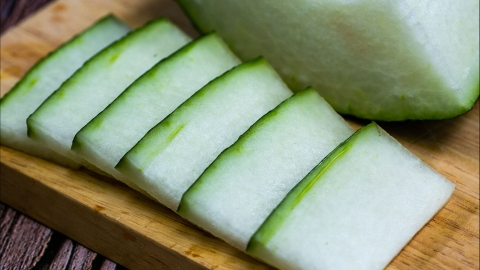Can winter melon and kelp be eaten together?
Under normal circumstances, winter melon and kelp can be eaten together. Details are as follows:

Winter melon is a common vegetable rich in water, dietary fiber, vitamins, and minerals. It has effects such as clearing heat and detoxifying, promoting diuresis, and reducing edema. Kelp, a type of seaweed, contains abundant iodine, algin, mannitol, and other substances, which can help regulate thyroid function and promote intestinal motility. From the perspective of nutritional components and properties, there are no obvious conflicts or interactions between winter melon and kelp. Therefore, they can be consumed together.
However, since both winter melon and kelp are cold-natured foods, individuals with weak digestive systems or those prone to diarrhea may experience gastrointestinal discomfort, such as abdominal pain and diarrhea, if consumed in large quantities simultaneously. Kelp contains a significant amount of iodine, and excessive intake may affect thyroid function, especially for individuals with existing thyroid conditions, who should consume it cautiously. Some individuals may also be allergic to kelp or winter melon, and allergic reactions may occur after consumption, in which case it is not recommended to eat them.
In daily life, in addition to kelp and winter melon, it is important to consume other vegetables and fruits to meet the body's daily nutritional needs and promote overall health.







